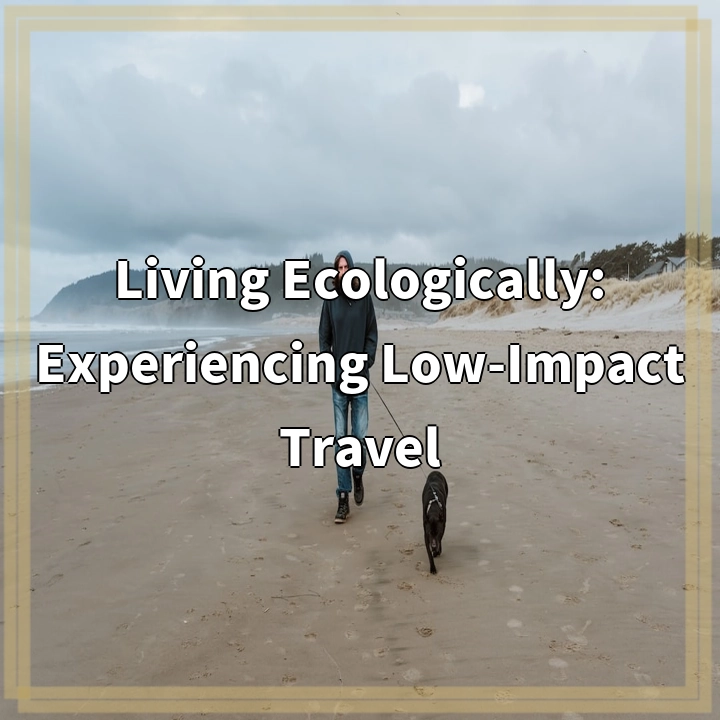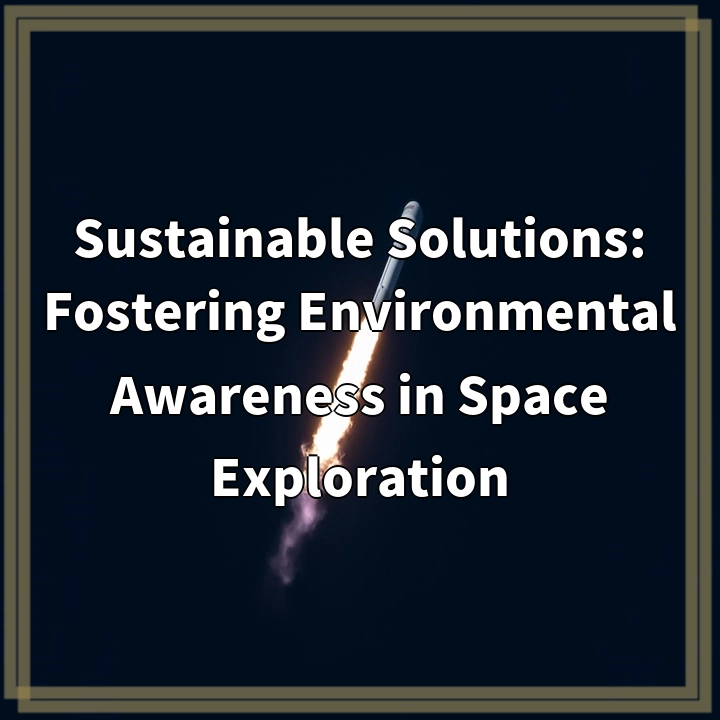
What is Living Ecologically: Experiencing Low-Impact Travel?
Living Ecologically: Experiencing Low-Impact Travel is a concept that focuses on minimizing the environmental impact caused by tourism and traveling. It involves making conscious choices as travelers to reduce our carbon footprint, preserve natural resources, support local communities, and protect fragile ecosystems. Low-impact travel encourages us to be more mindful of the environmental consequences of our actions and to find sustainable alternatives that contribute positively to the places we visit.
Real-World Problems Associated with Low-Impact Travel
1. Mass Tourism and Overtourism
The growing popularity of travel has led to a surge in mass tourism, particularly in popular destinations. Overtourism can put immense strain on local resources, such as water, energy, and waste management systems. It often results in negative environmental impacts, including pollution, habitat degradation, and the destruction of cultural heritage sites. Finding ways to manage and mitigate the effects of mass tourism is crucial for achieving low-impact travel.
2. Carbon Footprint and Transportation
One major aspect of low-impact travel is reducing our carbon footprint, which is primarily driven by transportation. Air travel, in particular, contributes significantly to greenhouse gas emissions and climate change. Finding alternative transportation options, such as trains or buses, using carbon offset programs, and opting for direct flights can help minimize the environmental impact while traveling.
3. Resource Consumption and Waste Management
Traveling often leads to increased consumption of resources like water and energy, especially in areas where infrastructure is not designed to handle large influxes of visitors. Additionally, waste management becomes a challenge as tourist activities generate tons of garbage. The improper handling of waste can contaminate local ecosystems, harm wildlife, and contribute to pollution. Adopting sustainable travel practices, such as reducing water usage, carrying reusable bottles and bags, and properly disposing of waste, can address these issues.
4. Loss of Cultural Authenticity and Social Impact
The rise of tourism can sometimes lead to the commodification of local cultures, resulting in the loss of cultural authenticity. Local communities may suffer from social and economic imbalances, as tourism revenues are often unevenly distributed. Encouraging responsible tourism practices, engaging in community-based tourism initiatives, and supporting local businesses can help preserve cultural heritage and ensure a fair distribution of economic benefits among local populations.
5. Wildlife Conservation and Biodiversity
Irresponsible tourist activities, such as illegal wildlife trade, habitat destruction, and disturbance of ecosystems, pose significant threats to wildlife and biodiversity. It is essential to raise awareness about the importance of protecting natural habitats, supporting wildlife conservation efforts, and participating in ethical wildlife tourism experiences. By doing so, we can help safeguard fragile ecosystems and ensure a sustainable future for both wildlife and tourism.

Solutions for Living Ecologically: Experiencing Low-Impact Travel
1. Sustainable Destination Management
It is essential to implement sustainable destination management practices to address the issues of mass tourism and overtourism. This includes controlling visitor numbers, promoting off-season travel, and diversifying tourism offerings to distribute tourist flow more evenly. Additionally, investing in local infrastructure, waste management systems, and sustainable transportation options can help mitigate the negative impacts of mass tourism.
2. Choosing Sustainable Transportation
To reduce our carbon footprint while traveling, it is important to opt for sustainable transportation options. This can include taking trains, buses, or ferry rides instead of flights whenever possible. Choosing direct flights, packing light to reduce weight on planes, and considering carbon-offset programs can also help minimize the environmental impact caused by air travel.
3. Responsible Resource Consumption and Waste Management
Being mindful of our resource consumption while traveling can make a notable difference. Simple actions such as minimizing water usage, conserving energy by turning off lights and electronics when not in use, and carrying reusable water bottles and bags can contribute to sustainable travel. Additionally, properly disposing of waste in designated bins or recycling facilities and supporting accommodations and businesses that prioritize waste reduction and recycling can help manage waste effectively.
4. Promoting Cultural Preservation and Community Engagement
To ensure the preservation of cultural authenticity, it is crucial to engage with local communities and respect their customs and traditions. Supporting community-based tourism initiatives, visiting locally-run businesses, and engaging in meaningful interactions with locals can enhance cultural experiences while providing economic benefits to the community. It is also important to seek out responsible tour operators that prioritize fair working conditions and transparent revenue sharing with local communities.
5. Supporting Wildlife Conservation and Responsible Wildlife Tourism
Protecting wildlife and biodiversity can be achieved by participating in responsible wildlife tourism experiences and supporting wildlife conservation initiatives. This includes choosing ethical wildlife encounters that prioritize animal welfare, refraining from purchasing products derived from illegal wildlife trade, and respecting wildlife habitats and ecosystems. By supporting conservation efforts and raising awareness about the importance of wildlife protection, we can contribute to the preservation of fragile ecosystems and help ensure the long-term sustainability of wildlife tourism.















